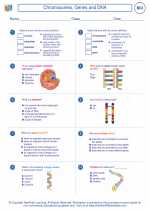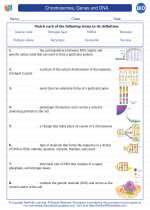Rivers
A river is a natural flowing watercourse, usually freshwater, flowing towards an ocean, sea, lake or another river. Rivers have played a crucial role in the development of human civilization, providing water for drinking, agriculture, transportation, and trade. Additionally, rivers support diverse ecosystems and are important habitats for various plants and animals.
Key Concepts
- Formation of Rivers: Rivers are formed through the accumulation of water from various sources such as precipitation, springs, and melting snow. The water flows downhill, carving into the land and forming a channel.
- River Processes: Rivers undergo processes such as erosion, transportation, and deposition. Erosion involves the wearing away of the land by the force of the water. Transportation refers to the movement of sediments and materials downstream. Deposition occurs when the transported materials settle out of the flowing water.
- River Ecosystems: Rivers support diverse ecosystems, including fish, aquatic plants, insects, and mammals. The health of river ecosystems is influenced by factors such as water quality, flow dynamics, and human activities.
- Human Impact: Human activities, such as dam construction, pollution, and deforestation, can significantly impact river ecosystems. Understanding and mitigating these impacts are essential for the conservation of rivers and their biodiversity.
- Uses of Rivers: Rivers serve various purposes, including water supply for drinking and irrigation, hydroelectric power generation, transportation of goods, and recreational activities such as fishing and boating.
Study Guide
When studying rivers, it is important to focus on the following aspects:
- Understanding the hydrological cycle and how rivers are formed
- Exploring the different stages of a river's journey, including its source, tributaries, and eventual discharge into larger bodies of water
- Learning about the geological and ecological significance of rivers and their impact on surrounding landscapes
- Investigating human interactions with rivers, including historical uses, current challenges, and conservation efforts
Additionally, students should engage in hands-on activities such as field trips to observe rivers and conduct water quality assessments. Studying maps and diagrams of river systems can also enhance understanding of river geography and topography.
Finally, students can explore case studies of famous rivers around the world, such as the Amazon River, the Nile River, and the Mississippi River, to gain a deeper appreciation for the cultural, environmental, and economic importance of rivers.
By delving into these key concepts and study guide components, students can develop a comprehensive understanding of rivers and their significance to both natural and human environments.
[Rivers] Related Worksheets and Study Guides:
.◂Biology Worksheets and Study Guides High School. Chromosomes, Genes and DNA

 Worksheet/Answer key
Worksheet/Answer key
 Worksheet/Answer key
Worksheet/Answer key
 Vocabulary/Answer key
Vocabulary/Answer key
 Vocabulary/Answer key
Vocabulary/Answer key
 Vocabulary/Answer key
Vocabulary/Answer key
